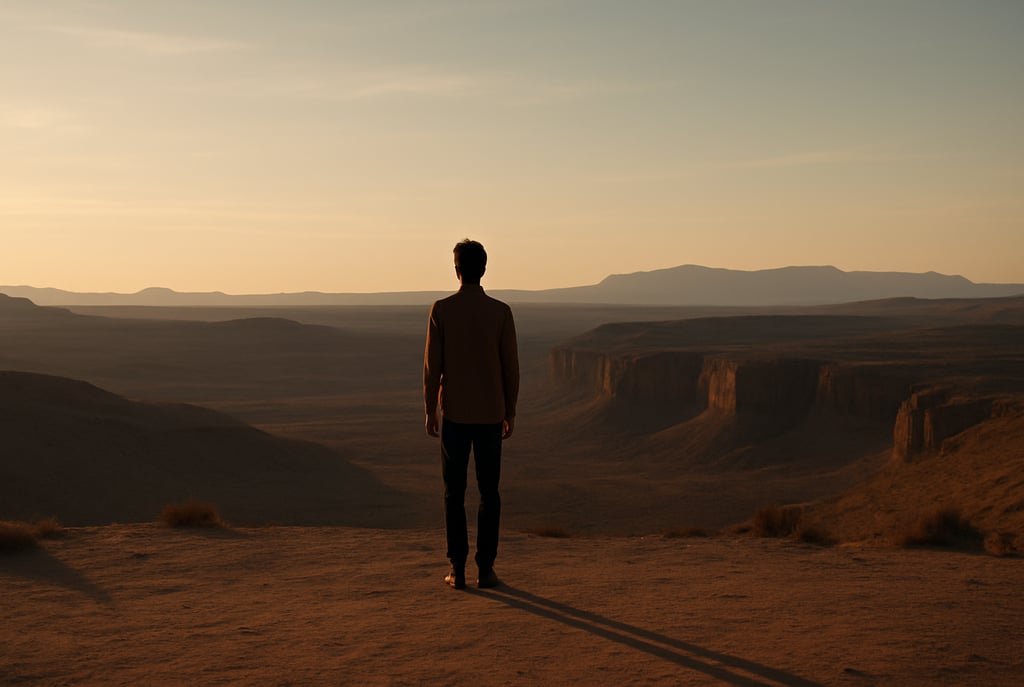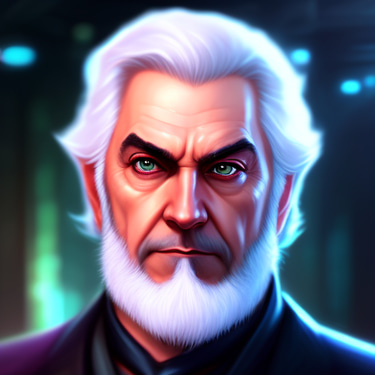So… What Do I Believe Now?
For a long time, I avoided talking about what I personally believe now. Not because I didn’t have thoughts — but because I didn’t want to shut down important conversations or alienate anyone who might still be listening. In this post, I finally share where I’ve landed, how my relationship with the Bible has shifted, and why belief — or unbelief — isn’t the thing that defines our humanity.
WHAT BROUGHT ME HEREFEATURED ON HOMEPAGE
Oliver
5/21/20256 min read


If you’ve followed my story until now, you might have noticed I’ve often danced around one particular question:
“What do you believe now?”
I’ve shared how I woke up. I’ve talked about the pain, the loss, the freedom. I’ve critiqued Watchtower teachings, organizational control, spiritual abuse, and the deeply embedded fear that shapes everything in that environment. But I didn't exactly spell out what I actually believe now.
That wasn’t an oversight.
It was a choice — a strategic one, maybe even a protective one. When you first walk away from something like the Jehovah’s Witnesses, it’s easy to feel like you’re walking a tightrope. You want to reach people. You want to be heard by those still inside. You want your voice to matter. And to do that, you sometimes hold back — especially if you know that saying certain things too soon could shut down the conversation before it even begins.
So yeah, I didn’t talk much about where I landed. Not because I didn’t know. But because I wasn’t ready to throw up walls just as I was trying to tear some down.
But I think I’m ready now.
So here it is:
These days, I consider myself an agnostic atheist.
Let me explain what that means — for me, at least.
I don’t believe in a personal god anymore. Not the God of the Bible, not any specific deity. And honestly? I love the idea of a benevolent creator — someone watching over us, caring about us, guiding us. But I just don’t see it. I’m open to evidence — but so far, I haven’t seen anything that convinces me. That’s the agnostic part: I don’t pretend to know what can’t be known. The atheist part? I simply live my life as if there is no god, because that’s what makes the most sense to me right now.
And living that way hasn’t radically changed my life — except that I no longer spend countless hours in “spiritual activities” like door-knocking, sitting through meetings, or prepping for talks. I still care about people. I still try to be kind, honest, and thoughtful. I just don’t feel the need to filter everything through an invisible authority anymore.
What I do believe in is people. Honesty. Curiosity. The power of asking better questions — even when we don’t always find neat answers.
And ironically, that curiosity brought me back to the Bible.
I set it aside for a little while — maybe just to breathe, to clear my head. But it didn’t take long before I picked it up again. This time, though, I wasn’t reading it through the Watchtower lens. No study edition. No footnotes. No “Insight” book. No WT Library. Just the text. And something strange happened: I got curious.
Really curious.
I started reading it like any other ancient text. I wanted to understand its history, its layers, its contradictions, its agendas. I began exploring the work of scholars like Dan McClellan, Bart Ehrman, James Tabor, Esther Hamori, and Candida Moss—people who actually study this stuff professionally, not just repeat pre-approved answers. And wow… what a difference.
It turns out, the Bible is a mess. But also? It’s fascinating.
It’s full of tension, politics, rewrites, redactions, legends, propaganda, poetry, and deeply human questions. Some of it is beautiful. Some is horrifying. Some is boring as hell. And some still resonates — just not in the way I used to think it did.
I don’t take it as “truth” anymore. But I still think it matters.
The Bible has shaped human history like few other works. It’s been used to justify liberation and oppression, love and hatred, peace and genocide. And even if you don’t believe it’s divinely inspired, it’s hard to deny its influence. So yeah — I think it’s worth reading. Critically. Contextually. Curiously.
And I still enjoy talking about it. Especially with people who are open-minded, whether they’re believers or not.
Some of my friends still believe in God. Some still believe in the Bible as holy. And we can talk. We don’t agree, and that’s okay. I’m not trying to convert anyone, and I’m not allergic to faith. If you’re open-minded, I’m open-minded. We can learn from each other.
What I don’t enjoy is the back-and-forth proof-texting. The verse battles. The “my interpretation vs. your interpretation” thing. Because once you step back, it starts to feel a bit like arguing over the Marvel Cinematic Universe. Sure, we can debate what Captain America really meant in that scene — but if you don’t look at who wrote the script and why, you’re kind of just spinning in circles.
To me, the Bible is a human book. A big one. A complex one. A book that includes some deep moral insight, some decent advice, some raw poetry, and also some outright atrocities. It’s not “the best book ever written.” But it’s not worthless either. It’s a window into how humans have tried to understand life, death, power, justice, and meaning. And that’s worth exploring.
One thing I’ve learned is this:
Jehovah’s Witnesses think they know the Bible. But what most of them really know — if we’re being honest — isn’t even the Bible, and barely even the Watchtower’s interpretation of it. That interpretation is so convoluted and layered with decades of shifting doctrine that even longtime members can’t always explain it. What they actually know is a simplified set of talking points, repeated just enough to feel familiar.
Most Jehovah’s Witnesses, especially older ones, can quote verses by heart and will confidently tell you that Moses wrote Genesis. And sure, that’s what they’ve been taught. But what’s usually missing is the broader context — the historical and literary analysis that scholars have developed over time. Like the Documentary Hypothesis, which proposes that the first five books of the Bible weren’t written by one person but compiled from multiple sources, each with different styles and purposes. Most Witnesses have never even heard of that kind of scholarship — because they’re not encouraged to explore the Bible that way.
Even younger JWs these days don’t seem that invested. There’s a whole generation that grew up with the 2013 Revised New World Translation — a much more simplified version of the Bible — and the rise of JW Broadcasting. For many of them, “Bible truth” isn’t something you study deeply. It’s more like a collection of video clips, jw.org slogans, and scripted answers. The kind of nuanced reading or real critical engagement just isn’t encouraged.
Belief Doesn’t Equal Goodness
I’m still untangling this in my own head, but I’ve come to see that belief alone doesn’t make someone good — or bad. That might sound obvious, but when you’re raised in a black-and-white system like Jehovah’s Witnesses, it’s hard to shake the instinct that your worldview is the measuring stick for everyone else’s.
Even in the exJW community, you’ll find all kinds of people — atheists, agnostics, Gnostics, spiritual-but-not-religious folks, and yes, fully believing Christians who still hold the Bible close. Some still believe in the God of the Bible. Some follow Jesus. They’ve left the organization, but not their faith. And you know what? They’re good people.
Really good people.
Some of the kindest, most supportive, most honest voices I’ve met in this journey still believe in God. They’re not trying to convert anyone. They’re just living their truth — just like I am. And I respect that very much.
I’ll admit, I still catch myself sometimes falling back into that old JW mindset — thinking, “Well, they still believe, so maybe they haven’t gone all the way yet.” As if there’s some final form we all need to reach. But that’s just leftover programming. The truth is, we’re all figuring it out, and no one owes anyone else a destination.
What matters more than belief is how we show up — for ourselves, and for each other.
And if this journey has taught me anything, it’s that we need each other. Not carbon copies. Not clones. Just real people, willing to sit in the tension, share stories, and hold space for each other’s messy, unfinished lives.
So… where does that leave me?
Here, I guess. In this in-between space. I don’t believe in a god. But I believe in people. I believe in asking questions. I believe in learning from the past, even when it’s messy. And I believe in honesty — about what we know, what we don’t, and what we’re still figuring out.
I don’t have all the answers. I’m not trying to start a new religion — or tear down anyone else’s. But if you’re curious, if you’re questioning, if you’re somewhere in that liminal space between “the truth” and whatever comes next…
You’re not alone.
I’m here too.
